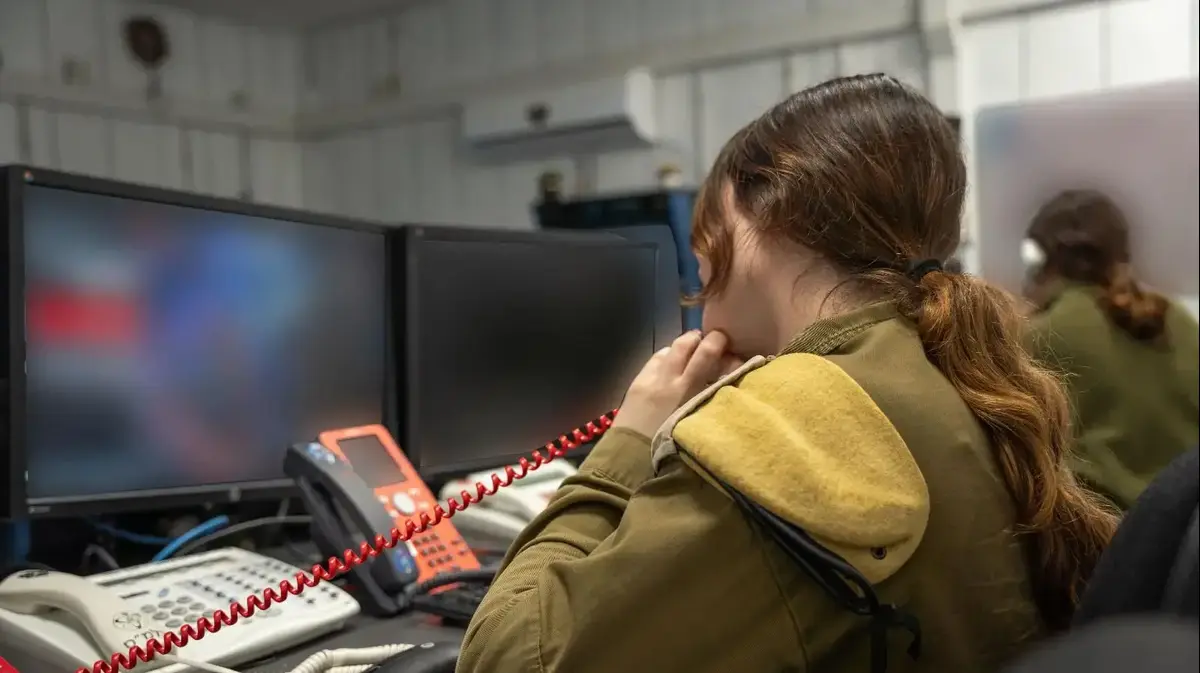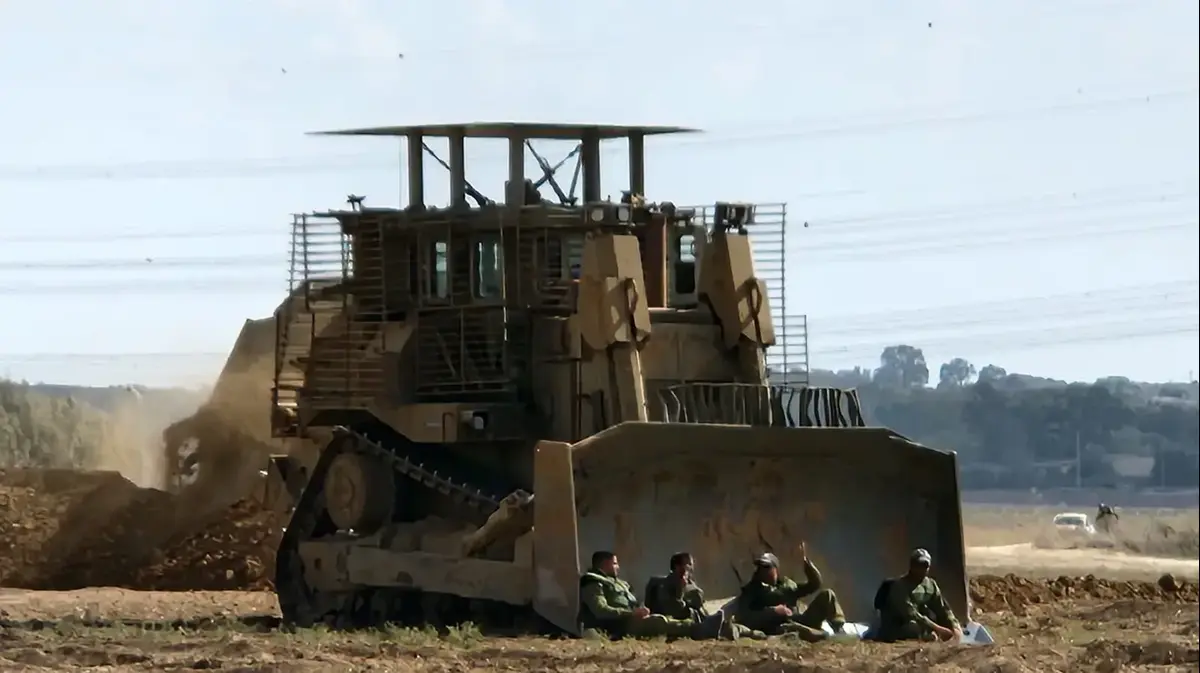health
parenthood
All the parents are terribly drained right now.
Where are more forces mobilized from?
We have already published quite a few articles here about the difficulties of parents, and also of their children, following the corona.
Given that she is not going anywhere, we decided to explore how new forces can be mobilized
Tags
Corona
depression
anxiety
parenthood
Stress
National Foundation
Friday, 30 October 2020, 07:34
Share on Facebook
Share on WhatsApp
Share on general
Share on general
Share on Twitter
Share on Email
0 comments
Relief in closure: kindergartens, beaches and reserves opened, ...
Rome: Anti-curfew protesters clash with police ...
Trump returns to the Oval Office even though he has not yet recovered: "The corona -...
Netanyahu in a statement ahead of the easing of restrictions: "Calls on the public ...
A person coughs and emits a droplet spray
7-month record: Corona outbreak in Xinjiang Province ...
Development of the vaccine for the corona virus, with first photographs ...
Gal Bitchi
Fibromyalgia Iris Geyer
MK Malinowski admits to the Corona committee that he violated guidelines: ...
First in Europe: Ireland enters the second closure on 20.10.20
Ministry of Health instructional video: Defending against fever ...
In the video: The chairman of the Knesset Student Council says that the youth are in a difficult mental state (Photo: Knesset Channel)
In Chinese the word ‘crisis’ is made up of the words ‘risk’ and ‘opportunity’, and it teaches a lot about their point of view.
Even in Western culture, it is believed that the number of declines is equal to the number of ascents in life, which is darkest before dawn and that pain - grows, and yet.
After the first closure period where we all enlisted, rallied, gave up, saw the beautiful sides of living together in the home space 24/7, the benefits of working from home and focusing on what matters - we ran out of air and went into a whirlpool.
A lot of people sink into depression and anxiety and fail to see the day beyond the crisis, identify opportunities or maintain a drop of optimism.
More on Walla!
NEWS
This closure made me think: Why did I even bring up children?
To the full article
And if it's not hard enough to deal with such incidents ourselves, certainly in a country saturated with wars, operations, attacks, terrorist attacks and what not, as parents - home leaders and mediators between children and the world - we know we lead a family and usually try to broadcast "business as usual".
The Corona is a marathon, not a sprint
The comparison of dealing with the corona virus to a marathon is probably the most accurate, I have not yet found otherwise.
Somewhere in March, we thought we could give the sprint of life, touch the cone and come back.
Today, our understanding is different, and we are in a period of disillusionment, of shaking off the illusion, of reading the uneasy reality, and even though we want to convey reassuring messages at home - it does not always work.
Our children, who do not yet wear all the psychological defenses of adults, have particularly pointed sensors.
They smell the fear, they experience our silence, they recognize hopelessness and know how to translate our facial expression and body language.
Children recognize hopelessness, even when you broadcast "business as usual."
A boy with a mask (Photo: ShutterStock)
As we continue to tell our children that 'everything is fine' or 'the corona will be over soon', we are trying to broadcast a sedative siren.
But if we do not believe in it, and on the contrary, are engrossed in anxiety or despair, we are more likely to create distance and mistrust between us (just as we feel in the face of policymakers spreading contradictory statements and updates that change news every morning).
Look for your strengths, they are there
Shortly before the role of parents (who completely went out of bounds this year) - we are human beings, and this time, those who face an unwanted reality ourselves.
This may come as a surprise, but even when the situation is so challenging, we have, in fact, a choice.
We have the ability to choose how our mood will be and how we will react, how optimistic or active we will be, but it requires us to accept reality on its positive and less positive sides.
In order for us to have the strength to better deal with the difficulties that have arisen in recent months and with those that are yet to come, we can begin to identify our strengths of resilience;
Where we flow more, where we can see the good, where we found a new option even though it was complex, how we manage to enjoy the “there is”, and by and large, what usually benefits us.
More on Walla!
NEWS
Should parents teach their children reading and writing at home?
Tough out there: How do you educate children for empathy?
Have you been told that your child is "too sensitive"?
You should read this
The advantages of mortgage insurance in a digital insurance company compared to the banks
Prof. Molly Lahad, a psychologist specializing in psychotrauma, developed the Mahad Bridge in the 1980s - a resilience model that speaks to the natural ability of each and every one of us to deal with situations of stress, uncertainty, danger and crisis. The Milestones of a Bridge (Abbreviations Of coping ways) allow us to identify our main components of resilience:
Body - relaxation and return to balance
Mind - positive thinking or thinking and learning in favor of finding a solution
Emotion - expressing the emotion, transcribing it and gaining legitimacy
Family - An anchor for sharing, support and encouragement
Belief - in ourselves or in an omnipotent factor, clarification of values that are important to us and search for additional meaning
Society - a joint activity with friends or for the community
Imagination - finding ways to distract and pause in ongoing situations
Try to find what works for you from this list and share with those around you what you need right now.
Think about who or what can help you, strengthen you and encourage you?
Friend, neighbor, running or yoga, organizing people in a similar situation and the like.
Give air after we have taken an inhale
Once you have managed to rise a little to get more resilient to everyday life with your children, you will be able to locate their resilience resources with them and reflect on them.
You can offer them to draw their palm, draw a balloon bouquet or make a set of hearts and write in them 5 things that help them in a difficult moment: it can be a hug from the parents, listening to a song they love, looking at pictures from a fun experience we had, walking together in the neighborhood, dancing , Count breaths, inflate a balloon or inflate soap bubbles.
We have something to learn from them.
But finding the resources of resilience alone will not suffice, and a routine in a house between 4 walls over time cooks the difficulty.
To keep moving as a system, we will also share with our children our feelings, depending on age.
Talk to your kids, it will help all parties.
Mother and daughter talking (Photo: ShutterStock)
In front of the little ones, we will set boundaries and try to give the quality time and together in small portions throughout the day, according to a schedule and not necessarily on demand.
In front of the older children (aged 10 and up), to the extent that they are not in emotional difficulty - tell briefly how you feel.
Share them at work, admit that you are a little bothered, find that you also miss them even if you are in the same house because everyone is terribly busy and ask for help with household chores (preferably for those whose products are visible and increase in value).
This will open up an authentic discourse on the situation, help them understand us better, cultivate their capacity for empathy and strengthen their index of contribution and usefulness.
A child who does not mediate the reality outside and at home - will complete the information gaps alone from his limited life experience and the logic of life that is formed according to what he sees and experiences.
Children up to the age of 12-13 do not yet have abstract thinking and the young people in them also lack the concept of time that begins to crystallize around the age of 5. Therefore, it will not help that we tell them that the situation is temporary.
In front of the older children - it is okay and right to retire a number of options, to admit that we do not know when they will return to school, to share that even policy makers are still waiting to understand the data and that everything affects everything.
In front of the young people - we will work mainly on the "here and now" and when we want to mark a destination we can connect it to familiar holidays or the seasons (when we light candles in the menorah, when we wear coats and the like).
This temporary is currently our regular
For most of us it is the easiest in the routine and we want things to just go back to running like last December.
This is part of the reason why it is difficult for us to digest the zoom sessions and work from home.
However, as we said, at this point we woke up a bit and realized that this temporary is our regular moment.
As difficult as it is to conduct with children at home, the powerful role we have taken on forces us to lift our heads and keep it above water.
Therefore, try to focus on an orderly daily routine, exercise, learning something new, quality time, and create a sense of success and ability even when the sea is rough.
But if you feel that your or the children's hard feelings outweigh the internal resources, and you recognize passivity, feel or hear about a sense of meaninglessness, find yourself avoiding participating in life cycles (family, school, work and society), notice difficulty falling asleep, change in eating habits, Mood swings, recognizing sudden violence or developmental regression - this may indicate an emotional imbalance.
In this case, seek professional support.
You're not alone.
Keren Artzi, Parent and Family Facilitator, Adler Institute
Share on Facebook
Share on WhatsApp
Share on general
Share on general
Share on Twitter
Share on Email
0 comments















